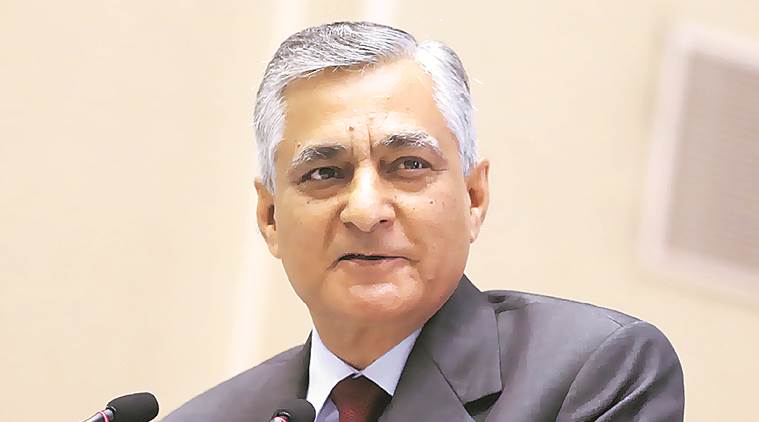 Justice Thakur said independence of judiciary was also a contemporary subject
Justice Thakur said independence of judiciary was also a contemporary subject
Former Chief Justice of India T S Thakur on Wednesday called the incidents of mob lynching a complete failure of law. He also stressed on the importance of independence of the judiciary in a democratic polity. Justice (retd) Thakur said a judiciary that measures up to some political ideology and succumbs to pressures will not be able either protect the Constitution or the rule of law.
He was speaking at the release of book, ‘The Wheel of Justice’ by former Union Minister M Veerappa Moily. Former Prime Minister Manmohan Singh was the chief guest at event, while Supreme Court Justice A K Sikri was the guest of honour.
Justice Thakur said Moily in his book has also highlighted the importance of independence of judiciary. “Who protects the law? Who ensures that is there is rule of law in this country? It is the independent judiciary that looks after not only the Constitution, but also ensures that we remain governed by rule of law, not by any autocrat. And therefore, for the survival of judiciary, for the survival of democracy, it is necessary that it remains independent,” Justice (retd) Thakur said.
He said, independence of judiciary and rule of law assumes significance “especially when we see day in and day out mobs lynching people. Its a complete failure of rule of law. If a mob can take law in its own hands and administer somebody justice, what kind of rule of law is it.”
“You could have been left to be lynched on the streets of Bombay (Mumbai) by a mob, but it would be negation of the rule of law. And if that were to happen our heads would have hung in shame… Therefore, we need to realise that when somebody like Moily shakes us up and reminds (us about) the importance of rule of law, it is not without any reason.”
Justice Thakur said independence of judiciary was also a contemporary subject. “Over the past few months you have seen how this issue has been debated in the public domain. Questions have been raised and many questions remain unanswered. Judges have themselves at times come out and expressed apprehensions about the judiciary…becoming dependent,” he said.